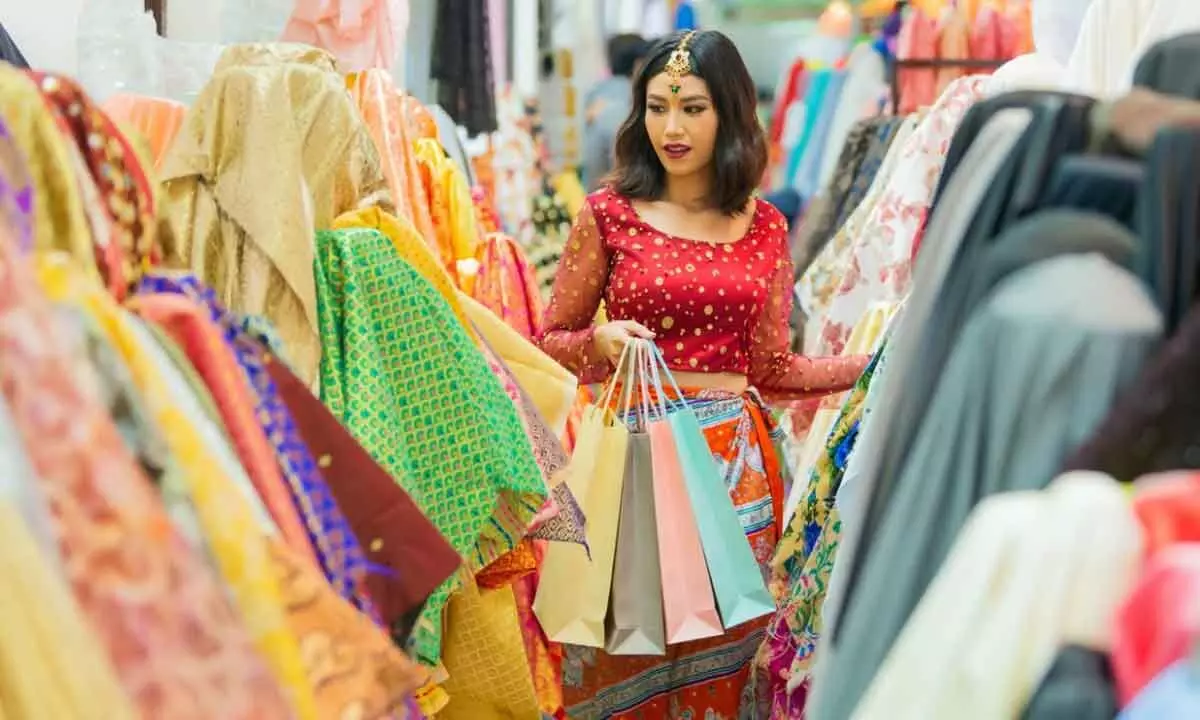India's luxury market booming as numbers of wealthy individuals surge
Indian luxury market is expected to grow by 10% over the next 5 years. Global brands have been making a beeline into India though strategic tieups
image for illustrative purpose

The luxury industry is often defined by opulent and elite consumption habits. People in emerging markets, however, are changing their buying habits, and this has implications for the luxury market. In today's world, more people have access to information than ever before and they somewhere become non-rational consumers. This means that consumers these days have a high influence by social media, social influencers, celebrities, or some other direct or indirect promotions of the products or services making an individual a non-rational consumer.
A non-rational consumer will always act without any reason or logic in its purchasing behaviour including financial interest. As per several pieces of research, it is visible that younger generations (i.e. Gen Z) are more exposed to such topics and they are more tend to end up buying more luxury consumables. These audiences had to be born between 1997 and 2003. A large chunk of this generation treat themselves with luxury goods and also often also gift to others.
The Indian luxury market is expected to grow by 10 per cent over the next five years. In the last couple of years, only the Indian luxury market has performed better than someone had expected. During the pandemic time, India was witnessing very easy, slow and sustainable growth. It is also projected that the Indian luxury sector will surpass $200 billion figure by 2030. A few days ago, Aditya Birla Fashion and Retail (ABFRL) has entered into a strategic partnership with Europe's top store chain – the Paris-based Galleries Lafayette - to open luxury department stores and a dedicated e-commerce platform in India.
Galleries Lafayette is known for its flagship location at Boulevard Haussmann in Paris. The flagship stores in Mumbai and Delhi will bring more than 200 luxury and designer brands under one roof, with a 90,000 sqft flagship store in Mumbai expected to be operational by 2024. The 65,000 sqft store in Delhi, expected to be operational in 2025, will be at DLF Emporio, one of India's largest luxury malls.
So much so, that Euromonitor International estimates the luxury goods market - which includes personal luxury, fine wines/champagne and spirits, luxury cars and experiential luxury - to bounce back, after the setback caused by the pandemic, to over Rs 50,000 crore by 2024 from around Rs46,000 crore in 2022.
India's fashion market is set to touch Rs5.7-5.8 trillion mark by 2024, driven by premiumization, greater penetration of e-commerce and a higher focus on private labels as well as entry of international brands, according to 2021 estimates by Boston Consulting Group.
Wealthy GenZ buyers are now making a beeline for high-end stores. They are keen to splurge, and spend the big bucks right now. There's also a surge in the number of Indian ultra high net-worth individuals (UHNIs) - those with net worth of $30 million or more. According to estimates by Knight Frank, India's UHNI population has risen 11 per cent between 2020 and 2021, and is expected to grow by as much as 39 per cent between 2021 and 2026. These UHNIs are big spenders, and are powering the Indian luxury market.
Industry estimates indicate that India's luxury goods market will be worth $8.5 billion in 2022, against $6 billion in 2021. It is expected to grow annually by 8 per cent (CAGR 2021-2025). It also doesn't hurt that the number of wealthy Indians has grown substantially over the last decade. There has been an 11 per cent increase in people with incomes above $30 million since 2011. That number is expected to climb to 39 per cent by 2026.
Balenciaga announced that it would enter India's luxury market by 2023. Valentino, meanwhile, has opened a boutique in New Delhi and a flagship location in Mumbai as part of a partnership with Reliance Brands Limited.
Global brands have been making a beeline into India though strategic tieups. Reliance Brands signed a strategic deal with global luxury brand Balenciaga. Reliance Brands's current portfolio of partnerships includes Armani Exchange, Bally, Bottega Veneta, Burberry, Clarks, Hugo Boss, Versace and Michael Kors.
ABFRL's international brands portfolio includes 'The Collective,' India's largest multi-brand retailer of international brands, and has long-term exclusive partnerships with select brands such as Ralph Lauren, Hackett London, Simon Carter, Ted Baker, Fred Perry, Forever 21, American Eagle and Reebok. India has also been voted as the seventh most valued nation brand. With an increase in 32 per cent in its brand value to $2.1 billion, India has moved up one position in the most-valued nation brands list. Not only that, this surge is the highest among all the top-20 countries on the list. The nation brand valuation is based on five-year forecasts of sales of all brands in each nation and follows a complex process.

